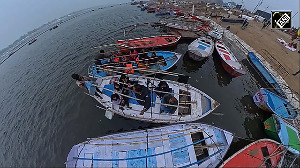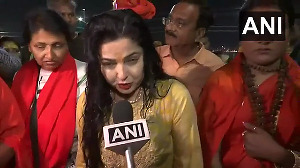An acknowledged authority on conflicts in Sri Lanka and the subcontinent, he has written extensively on ethnic politics, political violence, human rights, and conflict resolution. He has also worked closely with the Sri Lanka government on conflict resolution, peace negotiations and constitutional reform, and was involved in drafting the model constitution in 1999.
As a student-activist of the Janatha Vimukthi Peramuna movement in the '70s, he was arrested and imprisoned by the government. On his release after a change of regime, he went on do his doctoral research in the University of Hawaii on 'Nationalism and State Formation in Bangladesh'.
Actively involved with other subregional organisations engaged in peace and conflict resolution studies in South Asia, he has authored Sri Lanka: Modernity, Social Change and Claims of Justice. Creating Peace in Sri Lanka: Civil War and Reconciliation, and co-edited Sri Lanka's Peace Process, Critical Perspective, Essays in Constitutional Reform, and Matters of Violence, Reflections on Social and Political Violence in Sri Lanka.
In a exclusive interview in Colombo, he explains the roots of the current conflict to Managing Editor Sheela Bhatt.
What are the factors contributing to the current phase of violence?
One of the major reason is the failures of the peace initiatives of 2002 which have come to an end, and new initiatives have to be begun. The period between the 2002 when the peace process began, to the period when new initiatives should have begun has remained undefined. It has created uncertainty. In the process violence and limited war have become defining factors.
Some critics say the new government led by President Mahinda Rajapakse is diluting the idea of federal structure for Sri Lanka, which the previous government was considering. Has this change of approach contributed to the violence?
This is not correct. Even the previous government which started this negotiation in 2002 didn't have a clear political agenda or a roadmap of the outcome of negotiations with the LTTE. The LTTE thought they could have an interim administration in the Northern and Eastern parts of Sri Lanka. [But] The United National Front government which negotiated with the LTTE didn't share the latter's position. They thought they should not give as much extensive regional autonomy to LTTE as the LTTE had expected. The peace process collapsed when the LTTE was still talking to the previous UNF government in 2003. The present government has come into power in the wake of the collapse of the 2002 peace process.
The challenge before the present government is to initiate the new peace process. I don't think the present Sri Lankan government is in a position to take any of the fresh new set of political initiatives which are necessary to reinvigorate or reconstitute the peace process
Why do you think so?
Let us look at the vision of a political settlement put forward by the LTTE and the Sri Lankan government. The LTTE's vision of political settlement, even an internal political settlement, would be one that would be defined within the framework of extensive regional autonomy that would go far beyond the existing 1978 Constitution. But the present government wants to work this out within the 1978 Constitution. The existing Constitution defines the Sri Lankan State as a unitary state, while the LTTE's vision of a solution is far beyond even the conventional notion of federalism.
Conventionally, in federalism a political arrangement of regional autonomy exists within the framework of the Constitution with a firm central government and relatively small regional entities. But the LTTE vision is quite different: they want a Central government, but they [also] want the North-East regional entity that should go far beyond conventional regional autonomy. The LTTE wants that the regional entity should have the right to maintain their military institutions and establishments.
The argument forwarded by the LTTE is that until the terms of full and final settlement is fully and comprehensively implemented, there is no guarantee that the State run by the Sinhalese ruling class would honour the terms of agreement. The point here is that the LTTE is for maximalist regional autonomy and the government of Sri Lanka is for minimalist degree of regional autonomy. There is a vast gap between the visions of the two sides.
So when shall the twain meet?
It is very difficult. That's why one has to think about the political settlement of the Sri Lanka crisis as a prolonged and protracted one. It should be a protracted peace dialogue. The peace process should be for an interim settlement rather than a big-bang solution of the Sri Lankan ethnic conflict. We may have to go through a series of interim managements.
There is an assessment that LTTE chief V Prabhakaran thinks this is the last leg of his battle, and his time is up now. And that's why he is showing more vigour in struggling with the current situation. Is he in "do or die" kind of a situation?
No, I am not sure about it because I haven't met Prabhakaran. But looking at the LTTE's political statements and behaviour I would say the LTTE today is no longer what it was in 1987 or 1990. My own understanding of the LTTE is that it is seriously interested and committed to what one may describe as the nation-building and State-building. They are not interested in political and military suicide, like the Al Qaeda.
Do you mean to say the LTTE is not interested in a division of Sri Lanka, and could settle for something that could be termed as a little less than independence?
I would put it like this. I think the LTTE knows that a separate, mono-ethnic mini-State in South Asia is not feasible. They know it very well. The LTTE understands that Bangladesh is the last nation state that came out in South Asia. The LTTE is quite shrewd in understanding regional and global geo-politics.
So where are they driving at, then?
They are driving at a regional subnational State in Sri Lanka which they can call Tamil Eelam, but it may not be a separate State.
Do we have any such division anywhere in the world to follow as an example?
I don't think so. That's why the LTTE is a unique case. Due to the geopolitics of the region and the globe, the LTTE knows that a separate State is no longer feasible. They want a subnational state which should be a part of a larger configuration of Sri Lanka.
Will the Sinhalese accept such an idea?
The Sinhalese will find it extremely difficult to accept this [idea].






 © 2025
© 2025